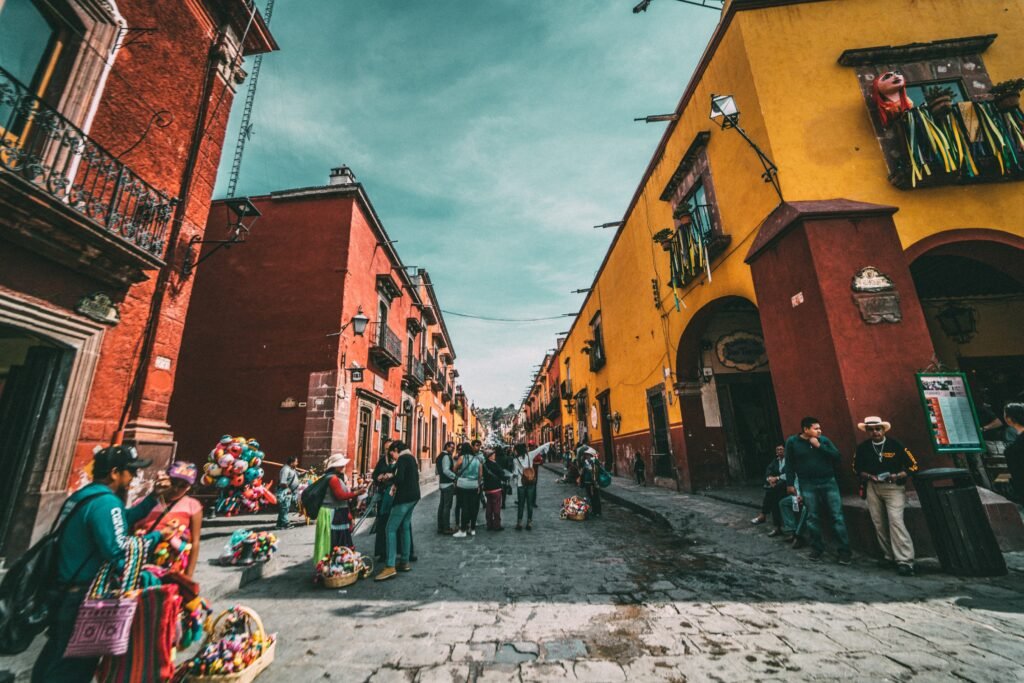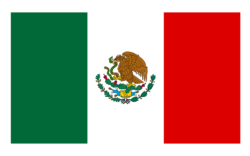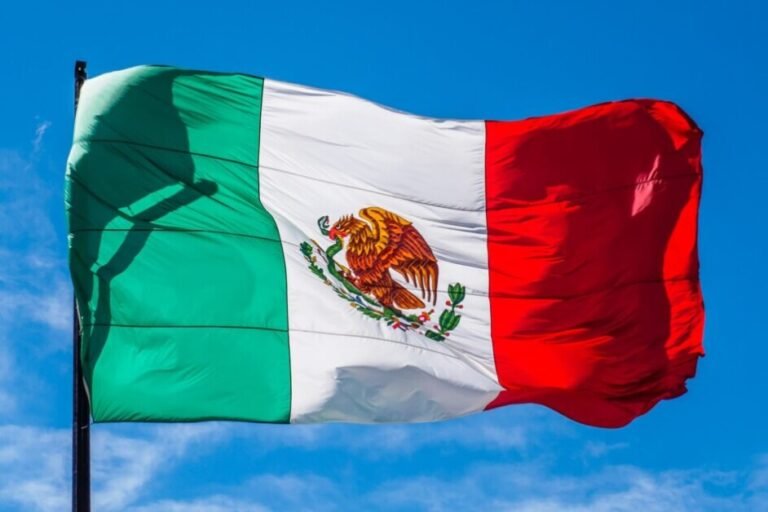Why Did France Invade Mexico?
Have you ever wondered why France decided to invade Mexico? In this article, we will explore the motivations behind this historical event that took place in the 19th century. Along with learning some interesting facts about the flag of Mexico and the vibrant Mexican culture, we will dig into the intriguing reasons that led France to make such a bold move. So, fasten your seatbelt and join us on a journey through time to unravel the mystery of why France invaded Mexico.
Introduction
Welcome to this comprehensive article about the Mexican-French conflict and the reasons behind France’s invasion of Mexico. In this article, we will delve into the political context, the appointment of Maximilian I, the resistance and battle for control, the role of Napoleon III, the reign of Maximilian I, and the fall of the empire. By exploring these topics, we hope to unravel the complexities of this historical event and shed light on the motivations behind France’s invasion of Mexico.
Political Context
French Ambitions in the Americas
France, along with other European powers, harbored ambitions of expanding their influence in the Americas during the 19th century. Seeking to regain a global foothold after losing much of their colonial empire, France saw the Americas as an opportunity for economic and strategic gains. This desire to assert their power led to French involvement in numerous conflicts throughout the region.
Mexican Political Instability
Mexico, in the mid-19th century, was plagued by a series of political struggles and turmoil. After gaining independence from Spain in 1821, Mexico faced internal divisions and frequent changes in leadership. The country’s political instability created an environment ripe for foreign intervention, as different factions vied for control over the nation.
The Mexican-French Conflict
The Monroe Doctrine and French Intervention
The Monroe Doctrine, issued by the United States in 1823, declared that any European intervention in the Americas would be viewed as a threat to U.S. national security. However, this doctrine did little to dissuade France from intervening in Mexico. Despite American objections, France saw an opportunity to gain a foothold in America and establish their influence on Mexico.
French Financial Interests in Mexico
Another motivating factor behind France’s invasion of Mexico was the significant financial interests French investors held in Mexican industries, primarily in mining and railways. By intervening militarily, France aimed to protect and expand these investments, ensuring a steady stream of economic benefits back to their own country.
Appointment of Maximilian I
Napoleon’s Selection of Maximilian I
Emperor Napoleon III of France saw the opportunity to establish a monarchy in Mexico that would serve as a puppet state under French influence. In pursuit of this goal, he recruited Archduke Ferdinand Maximilian of Austria to become the new ruler of Mexico. Napoleon hoped that Maximilian’s European lineage and royal credentials would lend legitimacy to his rule and solidify French control over Mexico.
Maximilian’s Acceptance and Arrival in Mexico
Despite initial reservations, Maximilian accepted Napoleon’s invitation and arrived in Mexico in 1864. He proclaimed himself Emperor Maximilian I of Mexico, with his wife Carlota as Empress. Maximilian’s arrival signaled the beginning of a tumultuous period in Mexican history, marked by resistance and conflict between the forces supporting the French monarchy and those advocating for Mexican sovereignty.
Resistance and Battle for Control
Mexican Resistance to French Occupation
The French occupation of Mexico was met with strong resistance from patriotic Mexicans who vehemently opposed foreign rule. Led by notable figures such as Benito Juárez, the Mexican resistance fought to defend their independence and sovereignty, refusing to accept the imposition of a foreign monarchy on their soil.
Battles and Conflicts
The struggle for control over Mexico culminated in numerous battles and conflicts. The Battle of Puebla, famously known as Cinco de Mayo, provided a symbolic victory for the Mexican resistance against the French forces. However, this initial triumph did not deter the French from their ultimate goal of maintaining control over Mexico and establishing a stable government under Maximilian.
Reasons for French Invasion
There were multiple factors that motivated France’s invasion of Mexico, including:
1. Debt Default and Reparations
Mexico had defaulted on its foreign debts, predominantly owed to European nations such as France. The French government used this as a pretext to intervene militarily, seeking to ensure repayment and protect the financial interests of their citizens.
2. Instability and Weakness
Mexico’s internal divisions and political instability made it appear weak and vulnerable to external influence. France saw an opportunity to exploit this weakness and establish dominance over Mexico, both economically and politically.
3. Intervention in Mexican-American War
France sought revenge for the Mexican government’s refusal to pay compensation for the losses suffered during the Mexican-American War. By intervening, France aimed to exert pressure and extract reparations by supporting conservative forces in Mexico.
4. Support for Conservative Forces
The conservative faction within Mexico had strong ties with France, based on shared political interests and a desire to maintain social order. By supporting this faction, France hoped to establish a stable government that would guarantee their influence over Mexican affairs.
5. French Ambitions for Empire
France’s historical legacy as a colonial power, coupled with their ambitions to compete with other European powers, fueled a desire to establish an empire in the Americas. By invading Mexico and installing Maximilian as Emperor, France aimed to extend their sphere of influence and assert their dominance over the region.

Role of Napoleon III
Support for the Conservative Party
Napoleon III, driven by his own political agenda, aligned himself with the conservative party in Mexico. He believed that supporting conservative forces would ensure stability and protect French interests in the region. Napoleon’s support provided a crucial backing for Maximilian’s claim to the Mexican throne, as well as the French military presence needed to maintain control.
Imperial Ambitions and Geopolitical Strategy
Napoleon III’s decision to invade Mexico can be understood within the larger context of his imperial ambitions and geopolitical strategy. By establishing a French-backed empire in Mexico, Napoleon aimed to challenge the dominant power of the United States in the Americas and return France to its former global glory.
The Reign of Maximilian I
Domestic Policies and Liberal Reforms
Despite being chosen and backed by the French, Maximilian implemented a series of domestic policies and liberal reforms during his brief reign. He aimed to improve the lives of the Mexican people by promoting agricultural development, education, and infrastructure improvements. His attempts to address social inequality and improve governance, however, were hindered by the opposition and resistance he faced.
Resistance and Opposition
While Maximilian attempted to govern in a somewhat inclusive and progressive manner, he faced significant opposition from Mexican nationalists and those determined to restore the republic. The resistance against his rule escalated, fueled by patriotic fervor and a desire to rid Mexico of foreign influence. This ultimately contributed to the downfall of the French-backed empire.
Fall of the Empire
Escalation of Resistance
Over time, the Mexican resistance grew in strength and momentum, fueled by a deep-seated desire for independence and national sovereignty. The escalating resistance made it increasingly difficult for the French forces to maintain control, as they faced continual uprisings and guerrilla warfare from the Mexican people.
Withdrawing French Troops
As the resistance gained ground, France began to reconsider the viability of maintaining their military presence in Mexico. In 1866, with the American Civil War concluded, the United States made it clear that their support for Mexico had shifted, increasing pressure on France to withdraw. Facing mounting challenges and a lack of international support, Napoleon III made the decision to pull French troops out of Mexico, marking the beginning of the end for the Mexican Empire.
Conclusion
In conclusion, the invasion of Mexico by France was motivated by a combination of political, economic, and strategic factors. France aimed to protect its financial interests, expand its influence in the Americas, and challenge the dominance of the United States. However, the resistance and determination of the Mexican people, coupled with the lack of international support, proved to be formidable obstacles for France. The fall of the Empire and the ultimate withdrawal of French troops marked a turning point in Mexican history, as the nation fought to preserve its independence and shape its own destiny.








